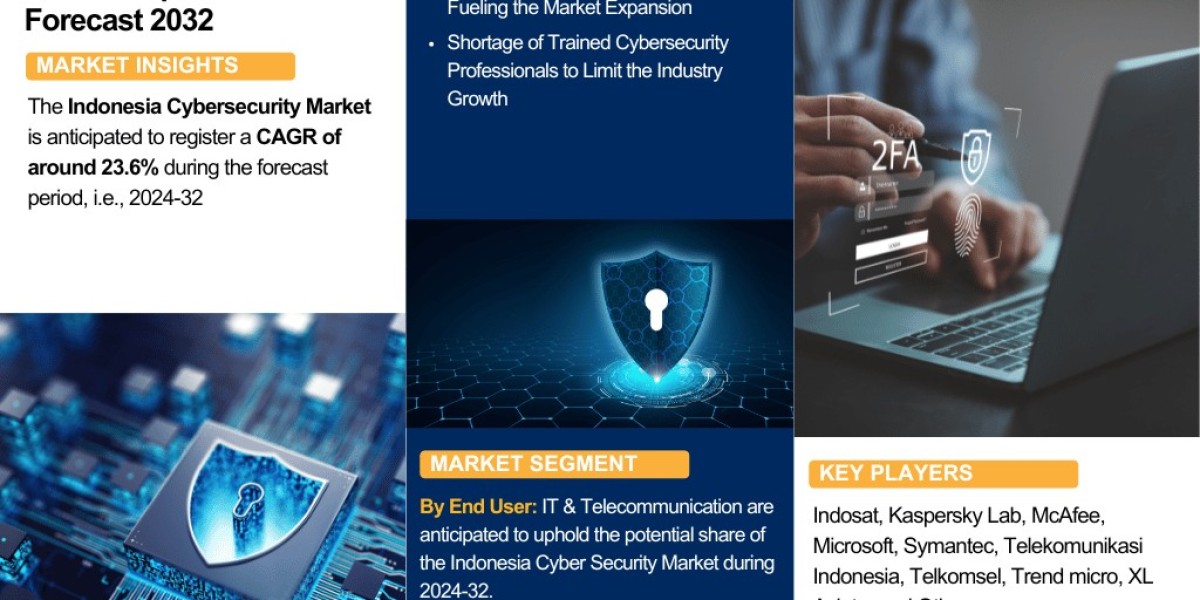Introduction
In today’s digital age, cybersecurity has become a critical concern for individuals, businesses, and governments. With increasing internet penetration, online transactions, and cloud-based services, the risk of cyber threats has grown exponentially. Cybersecurity refers to the practices, technologies, and processes designed to protect networks, devices, programs, and data from cyberattacks, unauthorized access, and damage.
For the general public, understanding cybersecurity is no longer optional—it’s a necessity. Whether you're shopping online, using social media, or managing bank accounts, cyber threats like phishing, malware, and identity theft can impact anyone. This article explores the importance of cybersecurity, common threats, best practices for protection, and the growing cybersecurity industry, with a focus on Indonesia's rapidly expanding market.
Why Cybersecurity Matters
Cyber threats are evolving, and attackers are becoming more sophisticated. Here’s why cybersecurity should be a priority for everyone:
- Protection of Personal Data – Cybercriminals target personal information such as bank details, social security numbers, and login credentials. A breach can lead to financial loss and identity theft.
- Business Security – Companies face risks like ransomware attacks, data leaks, and intellectual property theft, which can result in massive financial and reputational damage.
- National Security – Governments and critical infrastructure (power grids, healthcare systems) are prime targets for cyber espionage and cyber warfare.
- Growing Digital Dependency – As more services move online (e-commerce, digital banking, remote work), the attack surface for cybercriminals expands.
Common Cyber Threats You Should Know
- Phishing Attacks – Fraudulent emails or messages trick users into revealing sensitive information or downloading malware.
- Malware (Viruses, Ransomware, Spyware) – Malicious software that damages systems, steals data, or locks files until a ransom is paid.
- Data Breaches – Unauthorized access to confidential data, often due to weak passwords or unsecured networks.
- Social Engineering – Manipulating individuals into divulging confidential information through psychological tricks.
- DDoS Attacks – Overwhelming a website or server with traffic to disrupt services.
Best Practices for Cybersecurity
Protecting yourself from cyber threats doesn’t require expert knowledge—just awareness and good habits. Here are some essential tips:
For Individuals:
✅ Use Strong, Unique Passwords – Avoid common passwords like 123456 or password. Use a mix of letters, numbers, and symbols.
✅ Enable Two-Factor Authentication (2FA) – Adds an extra layer of security beyond just a password.
✅ Be Cautious of Suspicious Emails & Links – Don’t click on unknown attachments or links.
✅ Keep Software Updated – Regular updates patch security vulnerabilities.
✅ Use a VPN on Public Wi-Fi – Prevents hackers from intercepting your data.
For Businesses:
? Employee Training – Educate staff on recognizing phishing attempts and safe internet practices.
? Firewalls & Antivirus Software – Essential for blocking malicious attacks.
? Regular Data Backups – Protects against ransomware attacks.
? Incident Response Plan – Prepare for potential breaches with a clear action plan.
The Growing Cybersecurity Industry: Indonesia’s Market Outlook
The demand for cybersecurity solutions is skyrocketing globally, and Indonesia is no exception. According to The Report Cubes, the Indonesia Cybersecurity Market is projected to grow at a CAGR of 23.6% from 2024 to 2032, with the market valued at USD 1.2 billion in 2023.
Key Growth Drivers:
- Rising Cybercrime – Increased digital adoption has led to more cyber threats, pushing businesses and the government to invest in security.
- Government Initiatives – Indonesia’s National Cyber and Encryption Agency (BSSN) is strengthening cybersecurity regulations.
- Expansion of E-Commerce & Digital Banking – More online transactions mean higher risks of fraud and data breaches.
- Cloud Computing & IoT Adoption – As businesses migrate to cloud services, securing data becomes a top priority.
Opportunities in the Cybersecurity Sector:
- Increased Demand for AI & Machine Learning in Security – Automating threat detection and response.
- Growth of Cybersecurity Startups – Innovative solutions for SMEs and enterprises.
- Public Awareness Campaigns – More people are realizing the importance of cybersecurity.
Conclusion: Stay Safe in the Digital World
Cybersecurity is not just for IT professionals—it affects everyone. By staying informed and adopting best practices, individuals and businesses can significantly reduce their risk of cyberattacks.
With Indonesia’s cybersecurity market expanding rapidly (projected 23.6% CAGR), the country is taking steps to combat cyber threats. However, awareness and proactive measures remain the best defense.







